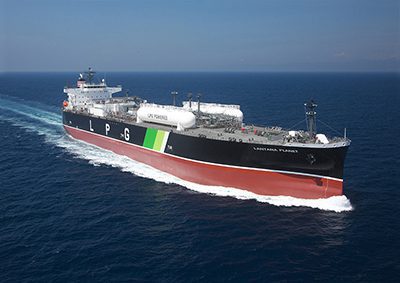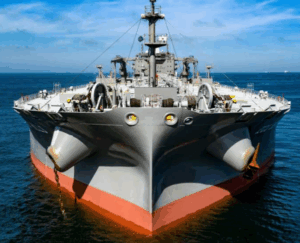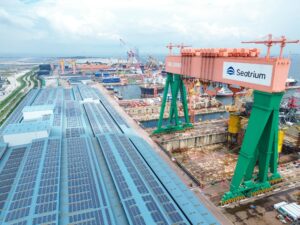
Japan´s shipbuilder Kawasaki Heavy Industries has delivered the liquefied petroleum gas (LPG) carrier Lantana Planet to compatriot shipowner Nippon Yusen Kabushiki Kaisha.
In accordance with Kawasaki information, the 84,000 m3 capacity vessel is a dual-fuel LPG carrier using LPG and low-sulfur fuel oil, and is the 69th LPG carrier built by the company. Lantana Planet vessel is their fourth 84,000 m3 LPG carrier adopting a dual-fuel main engine.
The 229.90 meter long LPG carrier is powered by LPG, which reduces greenhouse gas emissions and is expected to significantly reduce environmental impact, as the shipbuilder explains.
In this way, the new vessel will meet SOx emission standards which were strengthened in January 2020, and Energy Efficiency Design Index (EEDI) Phase 3 regulations which will further strengthen CO2 emission standards.
Since January 2015, SOx emission restrictions in North American and European emission control areas have limited sulfur content in fuels to 0.1% or less. Starting in January 2020, regulations have required ships operating in all other parts of the world to use fuel with sulfur content levels of 0.5% or less, or alternatively use equipment to reduce SOx in exhaust gases to an equivalent level.
Furthermore, EEDI compulsory international regulations are requiring energy-efficiency compliance in newly built ships based on EEDI values, which specify CO2 emissions in grams for transporting one ton of cargo for one mile. Phase 3 regulations (30% CO2 emissions reduction compared with baseline levels) will be introduced for certain ship types including large LPG carriers and LNG carriers contracted to be built in 2022 or later.
Additionally, the main engine and generator of the vessel are equipped with a Selective catalytic reduction System, an exhaust gas purification system to reduce NOx, which allows the ship to navigate in Emission Control Area.
Shipbuilder Kawasaki plans to develop and build more LPG-fueled LPG carriers, LPG/NH3 carrier, and other commercial vessels that meet environmental standards, as well as to develop and offer other eco-friendly marine technologies.


